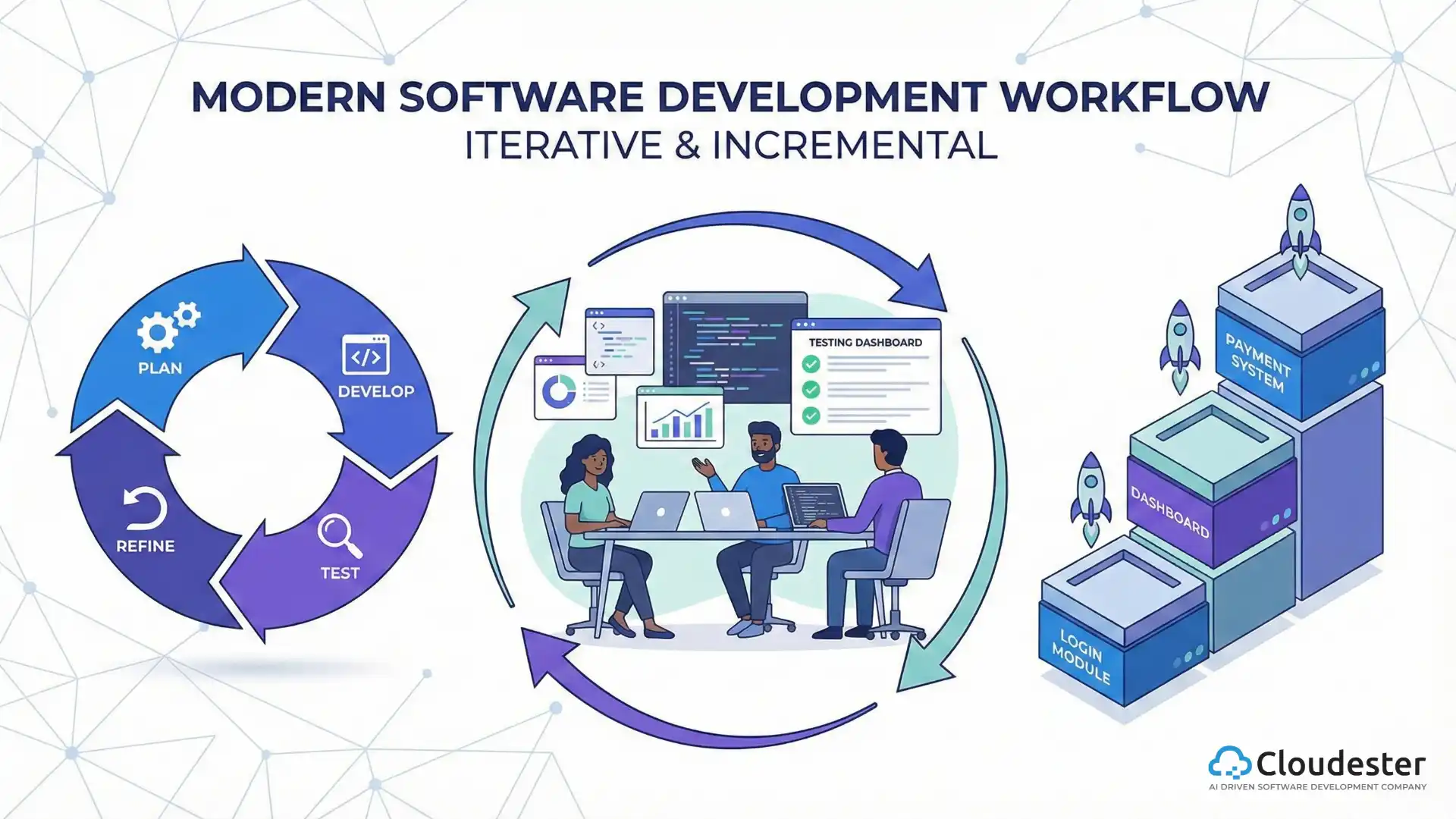Why Is It Essential to Have A Roadmap for Software Development?

Table of Contents
- How Do You Define A Roadmap for Software Development?
- Benefits of Planning Software Development Using A Roadmap
- 1. Gives Developers A Better Understanding of the Project
- 2. Motivates Your Team to Make Smarter Decisions
- 3. Helps Convince Your Teams
- Helpful Tips to Create a Roadmap for Software Development
- Step 1: Determine the ‘Why’s of Your Product’
- Step 2: Define the Intended Audiences for the Roadmap
- Step 3: Prioritize Your Product’s Theme
- Final Thoughts
A roadmap is essential for turning your vision into reality. Whether you are building a house, opening a new store, or launching a software product, a well-defined roadmap keeps everything aligned with your goals. It serves as a guide, ensuring clarity, structure, and measurable progress throughout your journey.
This article explains why a roadmap is crucial for successful software development planning. It highlights the benefits, offers practical tips, and outlines the steps to create an effective roadmap for your next project.
How Do You Define A Roadmap for Software Development?
A software development roadmap is a high-level visual plan that defines a company’s vision and strategic objectives for a specific product. It connects long-term goals with actionable tasks, helping teams stay aligned while maintaining flexibility for adjustments.
When and Why Should You Use a Software Development Roadmap?
Developing a software product involves following a logical series of stages to reach the desired outcome. First, an organization defines its product vision. Next, the product team translates this vision into a blueprint that outlines long-term goals and milestones. Finally, a cross-functional team of project managers and software developers collaborates to turn that roadmap into practical, actionable steps.
Benefits of Planning Software Development Using A Roadmap
1. Gives Developers A Better Understanding of the Project
A structured roadmap gives your developers a clear view of how their daily work contributes to the bigger picture. This understanding not only boosts motivation but also enhances collaboration and consistency throughout the project. As a result, the final product aligns better with both business goals and user expectations.
Custom AI Software Development Solution For Enterprises
2. Motivates Your Team to Make Smarter Decisions
Even with strong planning, product development often brings unexpected changes. Resource shifts, sudden budget constraints, or new business priorities can disrupt progress. With a roadmap in place, teams can reassess their goals quickly and make smarter, data-backed decisions to stay on track.
3. Helps Convince Your Teams
Simply listing project features rarely inspires teams. However, a well-structured roadmap acts as both a communication and motivation tool. It clearly shows how the project supports broader company goals, helping developers, QA teams, and stakeholders stay engaged and aligned with the project’s purpose.
Helpful Tips to Create a Roadmap for Software Development
Building a roadmap for software development requires a step-by-step approach. Follow these strategies to make the process more effective:
Step 1: Determine the ‘Why’s of Your Product’
Start by clarifying the strategic purpose of your product. Define what you aim to achieve, who will benefit, and why the product matters. This understanding ensures that every decision supports your overall vision and helps prioritize features that truly add value.
Step 2: Define the Intended Audiences for the Roadmap
Each audience requires a tailored version of the roadmap. Executives often look for strategic objectives and high-level timelines, while development teams need details on workloads, dependencies, and milestones. Identifying these audiences early helps you design a roadmap that communicates effectively at every level.
For instance, leadership teams focus on business outcomes such as increasing revenue or improving brand visibility. Developers, however, care more about project feasibility and resource allocation. Presenting information relevant to each group builds trust and promotes clarity.
Step 3: Prioritize Your Product’s Theme
Once your strategy and audience are clear, organize your roadmap by themes. Start with high-level goals, then break them into epics and features. This hierarchical approach helps teams focus on what matters most while still leaving room for innovation and flexibility.
Final Thoughts
A well-structured software development roadmap keeps product owners, managers, and developers aligned on priorities and timelines. It ensures that the final product launches on time, within budget, and with the right features. If creating a software development roadmap feels overwhelming, our experts can help you build a clear and actionable plan that drives success from start to finish.









